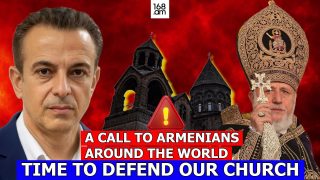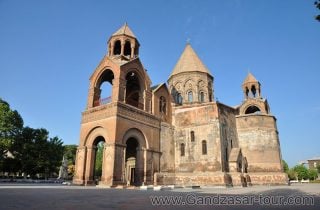If this happened to Navalni, this would have been on CNN, BBC and Reuters every day, it’s all about double standards: Arthur Khachikian
Interview with International Relations expert from Stanford University Dr. Arthur Khachikian
-Dr. Khachikian, thank you for being here today. We have some questions we want you to address. Today, Secretary General of the European Council is here. At the same time, in Armenia we live in a reality that we have numerous political prisoners being captured only two weeks ago. Basically speaking, what do you have to say about this?
-It’s very strange. I think that should be addressed. It was supposed to be a velvet revolution, a velvet democracy and those people who did that, why do you think they broke into the building of the state radio? So, for them to prosecute people based on hooliganism charges is very ironic. I was part of that interview, and, you know, the guys used some strong language but that does not amount to reason for people to be arrested, especially, in such a brutal manner. This would not have happened anywhere. This would not have happened in Europe or in the United States and I’m wondering why all those NGOs and human rights watchdog organizations are silent. Because this is a very clear violation of any conceivable norm of a free speech.
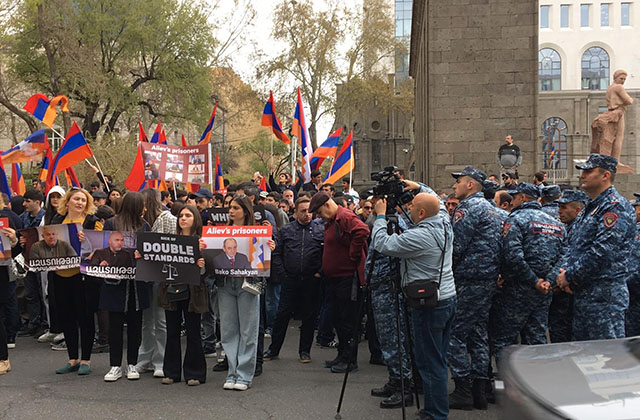
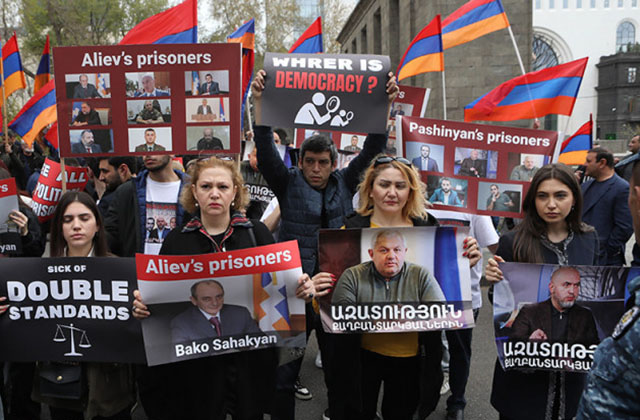
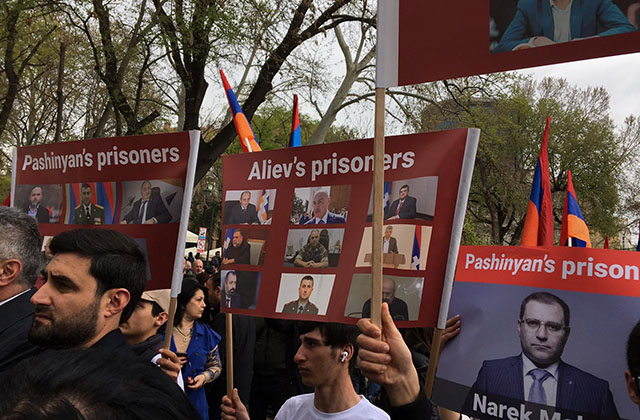
-Talking about the silence of Europe and the United States, if something like this happened in their countries, it would be a shock, it would be a breaking news, but now as it happened in Armenia; in a country which democracy they seemed to celebrate, they are silent. What do you think the reason is? Are they not being aware of the situation or are they specifically electing to ignore the circumstances?
-Well, if this happened to Navalni, God bless his soul, this would have been on CNN, BBC and Reuters and Deutsche Welle every day, fifty times a day. But sadly, because it’s not their guy, you know, they are silent. They’re ignoring this and this is not the first case. It’s very hypocritical. I think these double standards are very unfortunate. They are doing a lot of damage to the credibility of the so-called civilized world community and the West.
-Talking about our political prisoners, when Armen Ashotyan was captured, the European People’s Party, the biggest political family of Europe, made numerous press releases, resolutions recognizing and acknowledging him as a political prisoner. And EPP was not the only. Many other institutions did so, as well. So, how come the pro-European government of Armenia that seems to do everything possible to fit in with Europe, ignores the decision and the voice of the biggest European political family?
-Because, the European organizations and institutions are not putting any pressure on them, because he is their guy, we are not even discussing the fact that hundred and twenty thousand Armenians were ethnically cleansed. I have even heard that term from many European organizations. I think it’s very unfortunate, it’s very disappointing, because we believed for a moment, that there is such a thing as, you know, international community, European community, European values, democracy, human rights and it all came to as beautiful lie that we believed in six years ago.
–Unfortunately, we not only have political prisoners in Armenia, but also Armenian citizens that are illegally kept in Azerbaijan. And it seems Europe is quite on that, as well. What in the future we can anticipate on this behalf?
-Well, I haven’t heard of anything that they were doing. Yes, they are dependent on Aliev for their gas and oil. Ms.Ursula makes no secret of it. Even after Kharabakh was ethnically cleansed, they repeated that Azerbaijan is their reliable partner, there’s not a word being said about ethnic cleansing, nothing is being said about POWs who were supposed to be released three years ago according to treaty was signed. So, again, sadly, it’s all about double standards, it’s all about interests, that drive foreign policy of any country, including Europe and the United States. Sadly, that’s the reality of it.
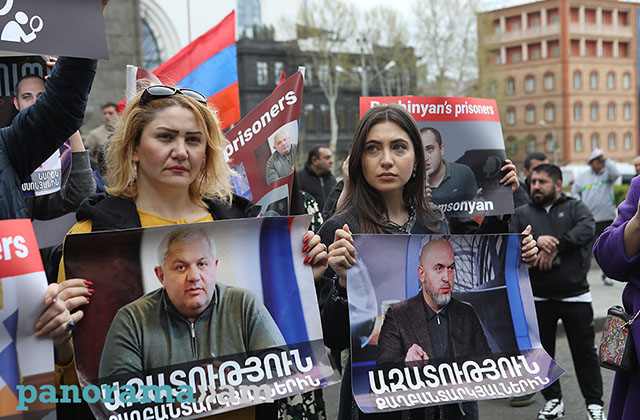
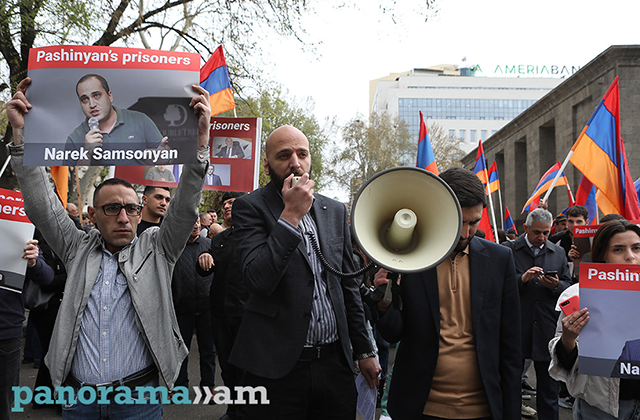
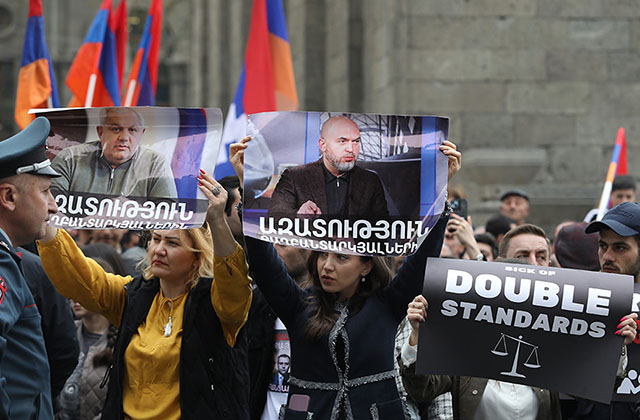
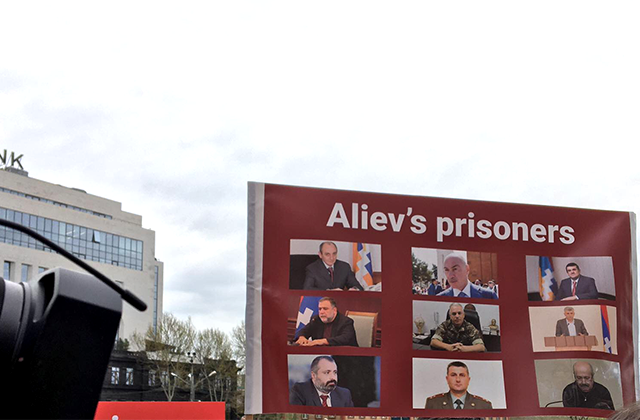
-And talking about Ms. Ursula, only a few days ago Armenian PM Pashinyan met her and Secretary Blinken in Brussels. Are there any takeoffs about prisoners in Azerbaijan or prisoners in Armenia that we can make from that meeting or was it just for another topic completely?
-I haven’t heard anything said about POWs or about the prisoners, leaders of Artsakh Republic imprisoned now in Azerbaijan, I haven’t heard anything about that. I haven’t heard anything about ethnic cleansing, I haven’t heard anything about the right of Kharabakh Armenians return to their homes. Nothing. All I’ve heard was that beat about limited financial assistance, which is great, but it doesn’t really change much and most of it will probably be used to sponsor those “human rights watchdogs” in Armenia that were completely silent when all these violations took place. So, for me it was, you know, really very disappointing.
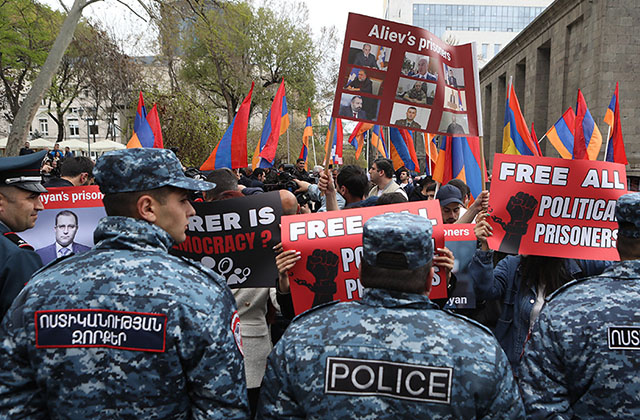
-And last but not least, Dr. Khachikyan, what are the key actions that have to be taken to bring these topics back to our agenda? What we have to do as a nation, as a Republic, as people?
-We have to look at the record of the past six years. It was a record of basically Armageddon for Armenia and the people have to realize that surrendering their country, surrendering their people bit by bit is not going to make them safe, is not going to make them prosperous. It’s very dangerous. And looking at the record of this regime, I think the first step; the essential step would be to replace them with a competent government, that is capable of leading us out of this disaster.








